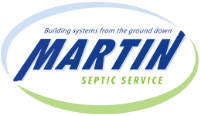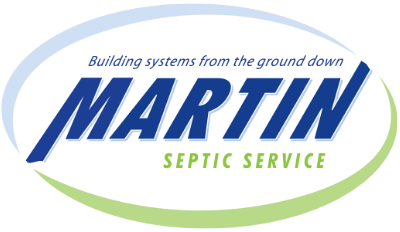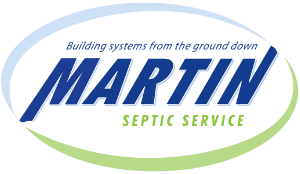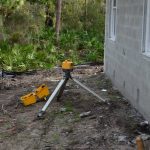FOG IN SEPTIC TANK WILL DECREASE TREATMENT EFFICIENCY
FOG is a component of sewage that originates from the oils and fats in food, soaps and lotions.
FOG stands for Fats, Oils and Grease.
Fats, oils, and grease (FOG) might make your taste buds dance, but when they enter your septic tank, they can turn into a plumbing nightmare. These substances might seem harmless as they swirl down your kitchen sink, but within your septic system, they can wreak havoc. FOG in septic tank forms a stubborn layer atop the water in the septic tank, essentially creating a barricade that slows down or blocks the natural breakdown of solids by beneficial bacteria. This can lead to reduced septic tank capacity, causing the tank to fill up faster than expected and increasing the need for more frequent pumping.
The buildup of FOG can also clog pipes, leading to slow drainage, backups, and potential damage to your entire septic system. In extreme cases, the excess FOG can even make its way into the leach field, further impeding the system’s ability to properly treat and disperse wastewater. So, while FOG might make your meals more mouthwatering, it’s best to keep them out of your septic system to ensure its smooth functioning.
When it comes to septic systems, FOG in septic tank can be likened to a sneaky saboteur. The presence of FOG not only disrupts the internal balance of your septic tank but also has a domino effect on the larger system. As FOG accumulates over time, it creates a layer that traps other solids and debris, leading to reduced bacterial activity and decreased effectiveness of the treatment process. This buildup not only demands more frequent maintenance and pumping but can also result in costly repairs or replacements if left unaddressed.
Moreover, FOG in septic tank doesn’t just stick around inside the tank; it can infiltrate the drainfield as well, clogging soil pores and rendering the soil less absorbent, which compromises the final stages of wastewater treatment. To keep your septic system running smoothly, it’s essential to bid a fond farewell to FOG – disposing of cooking oils and grease in the trash or recycling, rather than down the drain, is a small effort that pays dividends in preserving the health and longevity of your septic system.
WHERE DOES FOG COME FROM?
The fats and oils found in onsite wastewater treatment systems come from cooking oils, animal fat, and grease that are washed down the drain.
FOG can accumulate inside pipes and clog the downstream components, so it is important to contain it early in the system. In large amounts, FOG will interfere with aerobic biological processes and cause decreased treatment efficiency.
The FOG in domestic wastewater is usually generated from the kitchen or bathroom.
- Most kitchen FOG in septic tank comes from disposing of food scraps and liquids down the sink that are animal or vegetable based.
- Fat is added to the system from cooking, dishwashing and cleaning.
- Sources of bathroom FOG include lotions, hair conditioners, bath oils and moisturizers.
FAT – Animal fat is relatively easy to hold in a tank because it becomes a solid at 80 degrees F, and the temperature of wastewater is usually cooler than that.
Animal fat will eventually break down in the soil, but it takes more energy to break down than organic matter. If a system has a lot of animal fat, it will usually stay in the septic tank, and may not be observed in the FOG measurements in downstream components.
OIL – Vegetable oil typically does not solidify, and can pass through the system. Oil will rise to the surface of the tank and is easily separated. It can be broken down, but it takes more energy than the organic matter.
GREASE – Grease comes from soaps, hair products and lotions. Because it is petroleum-based, it can be toxic to a system. It does not break down, but it can be separated. Grease can build up over time, and inhibit treatment of other constituents in the wastewater.
SOME OF THE WAYS WE CAN HELP YOU DEAL WITH FOG
- Evaluate and determine the sources of FOG in septic tank.
- Help you reduce the levels of FOG in your system.
- Design a system that can better handle the measured or anticipated levels
- Install an external grease interceptor.
Septic tank professionals are the unsung heroes of the underground world, ensuring that the often overlooked but essential systems run smoothly. Our expertise and experience are invaluable when it comes to installation, maintenance, and troubleshooting of septic systems. Our team members are professionals who possess the knowledge to assess soil conditions, calculate appropriate tank sizes, and design effective drainfields, tailored to the unique characteristics of each property. Regular maintenance and inspection performed by these experts not only extend the lifespan of the septic system but also prevent potential disasters such as backups, leaks, and contamination.
In a world where DIY solutions might seem tempting, septic tank professionals bring a level of understanding that goes beyond the surface. We understand the delicate balance of microbes, organic matter, and wastewater treatment that occurs within these systems. Their keen eye can spot potential issues before they escalate, saving homeowners from costly repairs and environmental harm. We also know the unique requirements of septic tanks in southwest Florida.
With our guidance, homeowners can navigate proper waste disposal practices and make informed decisions about water usage to keep their septic systems functioning optimally. In essence, septic tank professionals provide peace of mind by ensuring that the hidden mechanisms of waste disposal remain efficient, effective, and environmentally responsible. We look forward to helping your home septic system run properly. Give us a call today or complete our online request here!







